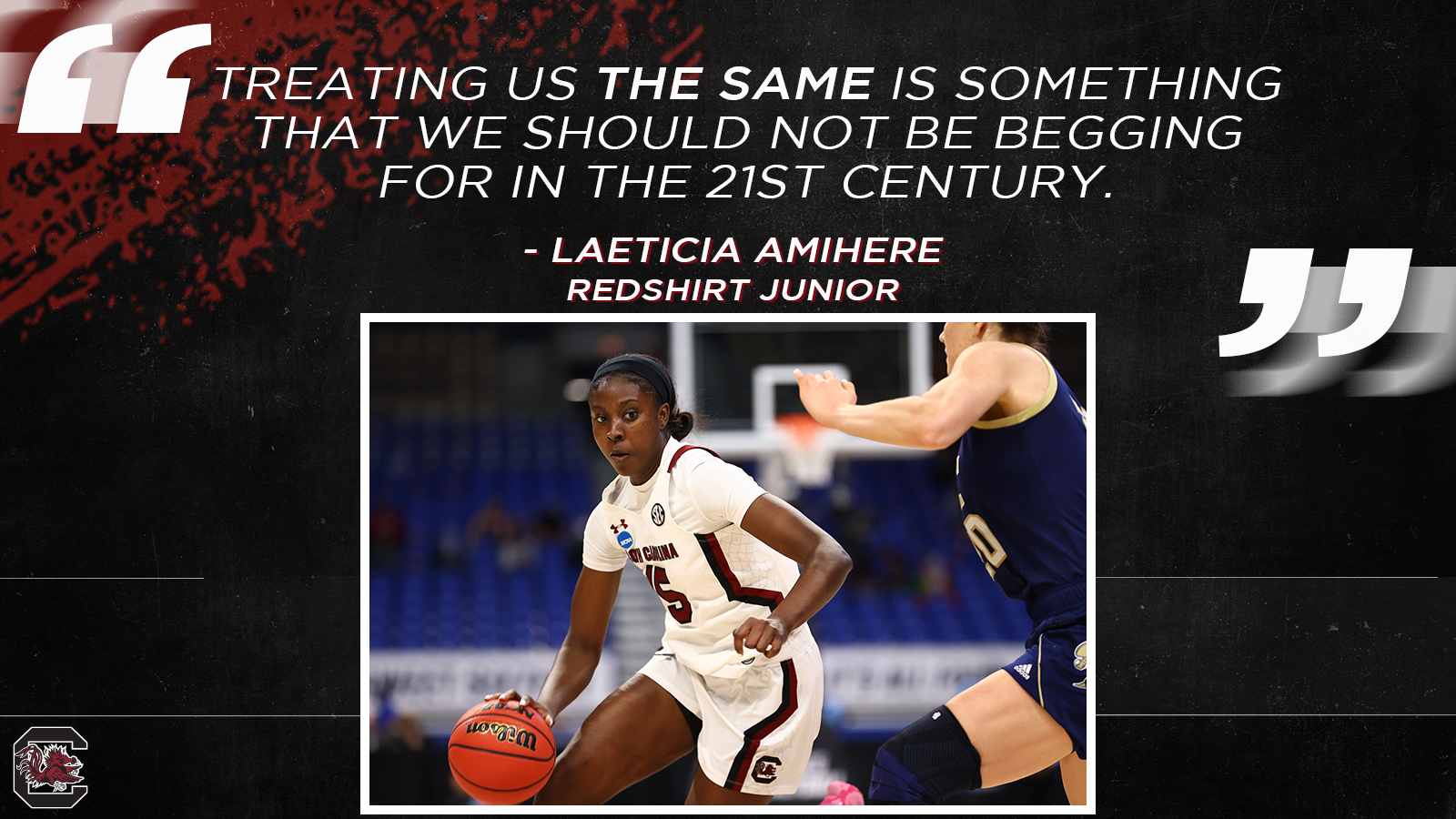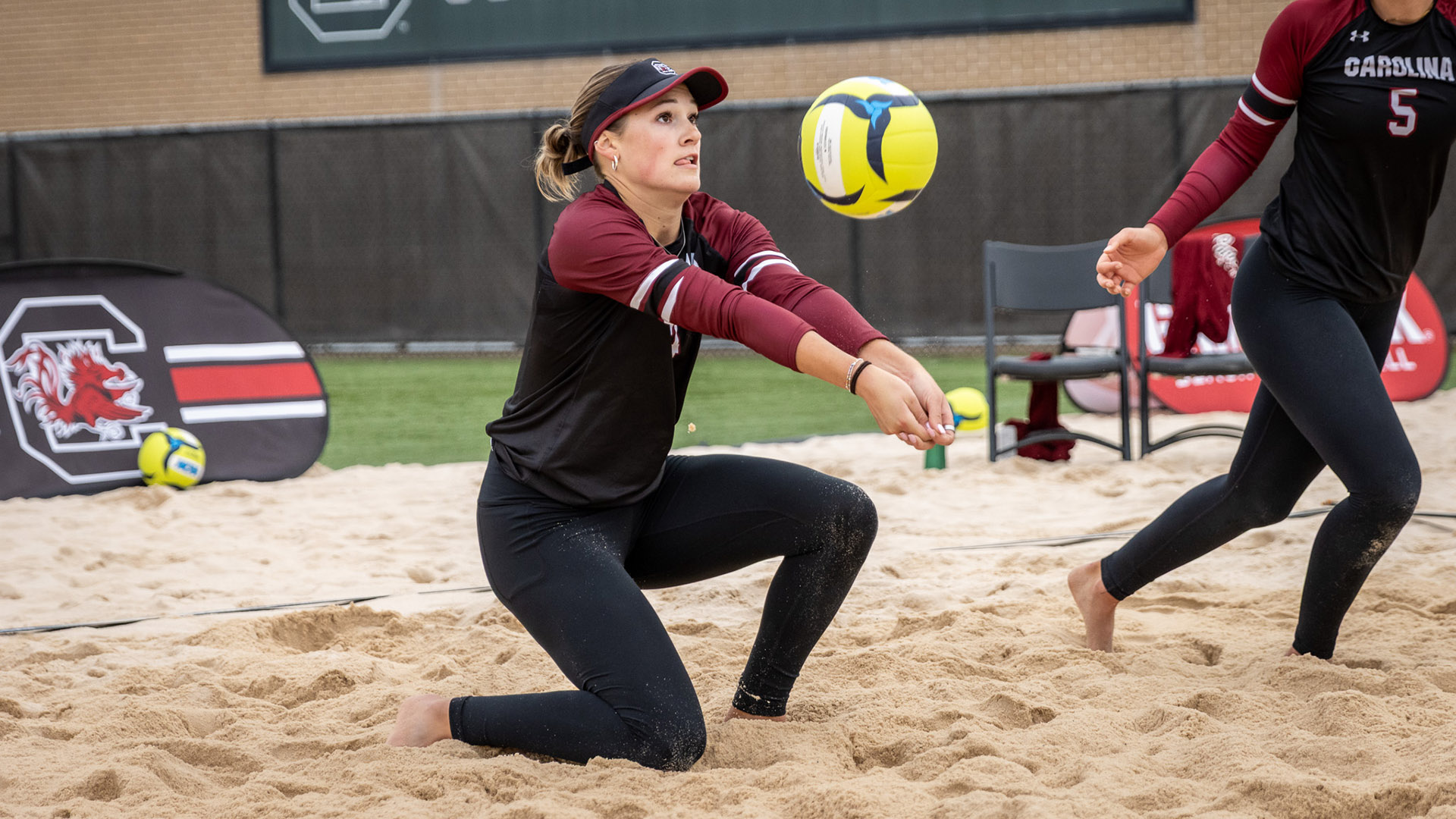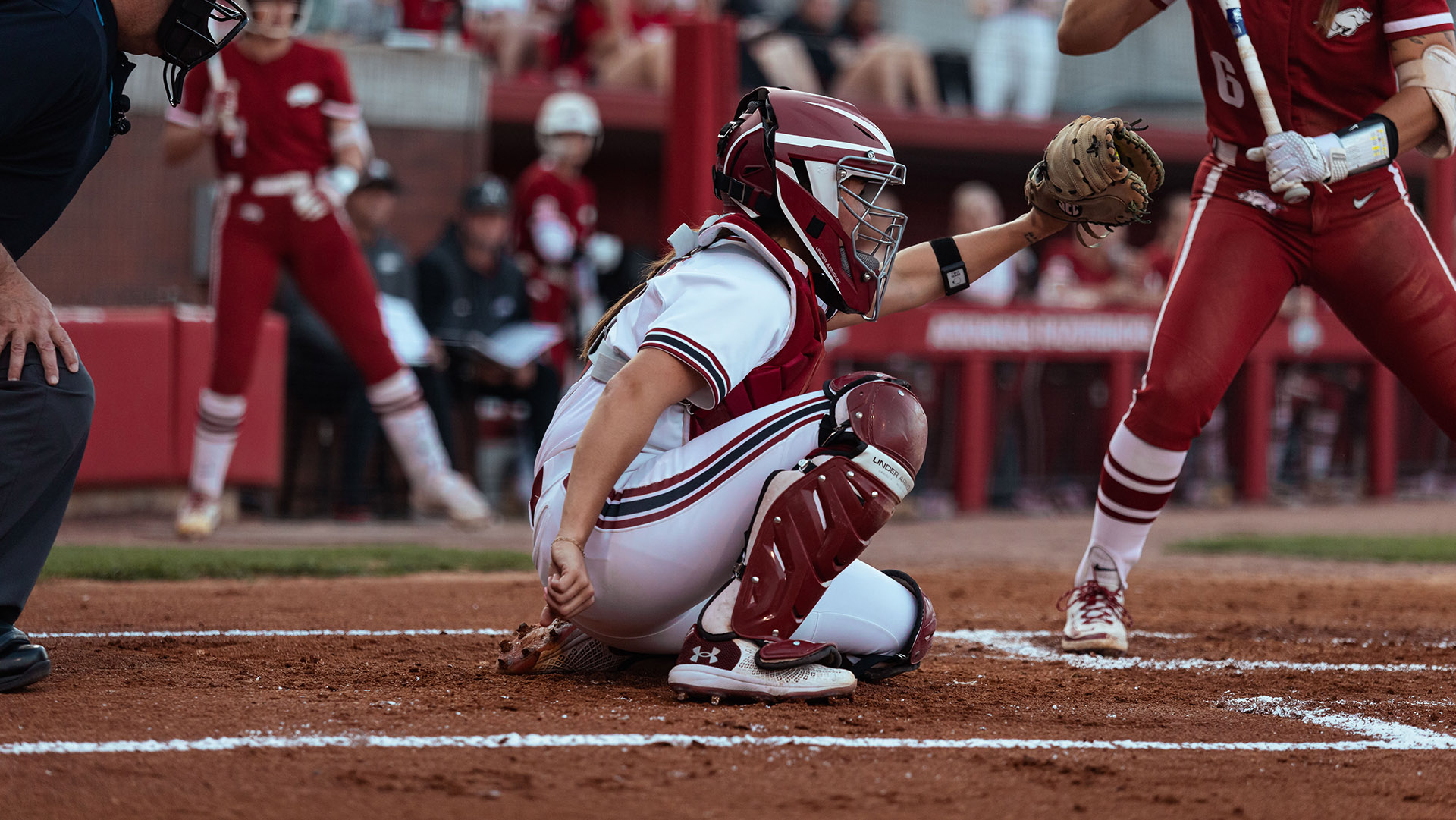
Amihere is Making an Impact On and Off the Court
Laeticia Amihere is emerging as a leader, on and off the court. Whether it’s scoring, rebounding, or blocking shots, the redshirt junior on South Carolina’s women’s basketball team was a big contributor off the bench last year during another run to the NCAA Final Four for the Gamecocks. She is also making an impact with her voice and recently took part in a Women’s Basketball Coaches Association virtual listening session on women’s sports hosted by the White House Gender Policy Council.
“I knew this would garner a lot of attention because it’s something that is so simple,” Amihere said. “Simply treating us the same (as the men) is something that we should not be begging for in the 21st century. I’m sure that all the work that I have put in, and all the work that the coaches have put in, will allow us to see a difference.
“They invited people that have been very vocal with any issues going on and people who have been leaders on campus. When something happens, I use my voice and my platform to bring awareness about it. It’s important for people that don’t know what’s going on to be informed. It was an honor for me to be chosen and represent my school and women’s basketball so I could use my voice for them.”
“If it comes up to the level of the White House, it means that we’ve done our job.”
The purpose of the session was to ensure that the challenges and needs of female athletes are part of the White House Gender Policy Council’s government-wide strategy to advance gender equity and equality. Several other women’s basketball student-athletes, coaches, including South Carolina head coach Dawn Staley, and administrators, as well as several officials from President Joe Biden’s administration took part in the session.
Among the topics Amihere was most vocal about in the last year were inequities she saw between the men’s and women’s NCAA basketball tournaments, including the initial huge disparity in what was made available to the women in regard to weight room facilities.
“You see inequities with the weight room, the gift bag, and those sorts of things, and you see that women’s basketball is not held in the same high regard as the men,” Amihere said. “Even when it comes to things such as using ‘March Madness’ for the (women’s) tournament. That was something that wasn’t able to happen until this year.”
Amihere played in every game for the Gamecocks last year, averaging 6.8 points and 5.5 rebounds per game, while ranking third in the team in blocked shots. She is also a two-time member of the SEC Community Service Team. Even with a full plate between basketball, academics, and service, Amihere noted the importance of speaking up when she sees something that isn’t right.
“The things we asked about were very small in my eyes, but they serve as a huge thing for women’s basketball. When these things are corrected, then we can move forward and inspire the next generation of young women to expect the same treatment as men.”
It’s one thing to speak up, but in seeing change happen and having an audience with the White House Gender Policy Council, Amihere knows her voice is being heard.
“If it comes up to the level of the White House, it means that we’ve done our job,” Amihere said. “We’ve done our job in raising awareness. I am very confident that we will get things changed. You’ve already seen it with our being able to use ‘March Madness’ to promote the women’s tournament.”
Amihere recently spoke with SEC Commissioner Greg Sankey on the topic of gender equity, and while no formal announcements have been made yet, she looks forward to seeing more changes in the near future. As she prepares for the upcoming basketball season, Amihere will continue to be active in speaking out about equity issues.
“This is an on-going conversation,” Amihere said. “We have meetings throughout the year to talk about what’s happening and to make sure these sorts of things don’t happen again.”












